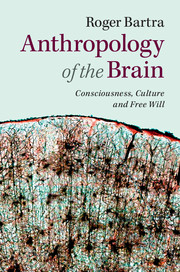Book contents
- Frontmatter
- Contents
- Preface
- Part I Consciousness and symbolic systems
- 1 The hypothesis
- 2 Evolution of the brain
- 3 Brain plasticity
- 4 Is there an internal language?
- 5 Amputations and supputations
- 6 The atrophied exocerebrum
- 7 The symbolic substitution system
- 8 Neuronal mirrors
- 9 Consciousness within hand’s reach
- 10 Outside and inside: the immense blue
- 11 The musical spheres of consciousness
- 12 Artificial memory
- 13 The lost soul
- Part II Brain and free will
- Bibliography
- Index
- References
12 - Artificial memory
Published online by Cambridge University Press: 05 June 2014
- Frontmatter
- Contents
- Preface
- Part I Consciousness and symbolic systems
- 1 The hypothesis
- 2 Evolution of the brain
- 3 Brain plasticity
- 4 Is there an internal language?
- 5 Amputations and supputations
- 6 The atrophied exocerebrum
- 7 The symbolic substitution system
- 8 Neuronal mirrors
- 9 Consciousness within hand’s reach
- 10 Outside and inside: the immense blue
- 11 The musical spheres of consciousness
- 12 Artificial memory
- 13 The lost soul
- Part II Brain and free will
- Bibliography
- Index
- References
Summary
We are very accustomed to using enormous libraries, gigantic databases, and immense information deposits that we can access through the Internet. Obviously, these are artificial memories that function as prostheses for supporting and expanding the limitations of our natural capacity to store information inside our heads. Artificial memories, large or small, are the most obvious example of what I have called exocerebral networks. These external memory circuits include all kinds of registers (baptismal, property, civil, etc.), documentary archives, museums, maps, tables, calendars, organizers, chronologies, cemeteries, monuments, commemorative ceremonies, and the abovementioned libraries, databases, and the Internet. The complexity of these prostheses that store the collective memory is overwhelming. It is worth going back to their humble origins in order to look for some of the keys as to how they work. In ancient times, even though writing was already in use, there was a great dependence on oratory and the oral transmission of knowledge. Everything the Greeks wanted to say in a speech they had to remember and to do so they resorted to mnemonics, a set of devices that helped increase the natural capacities of memory. Plato saw writing as a threat to the memorizing abilities of the soul. In Phaedrus he refers to the myth of the discoverer of writing, the god Theuth, who was proud of the fact that writing would enable the Egyptians to have better memories. He presented writing as a “recipe for memory and wisdom.” When Theuth showed his discovery to Thamus, king of Egypt living in Thebes, the king told him that to the contrary, “if men learn this, it will implant forgetfulness in their souls: they will cease to exercise memory because they rely on that which is written, calling things to remembrance no longer from within themselves but by means of external marks; what you have discovered is recipe not for memory but for reminder.”
- Type
- Chapter
- Information
- Anthropology of the BrainConsciousness, Culture, and Free Will, pp. 94 - 105Publisher: Cambridge University PressPrint publication year: 2014



